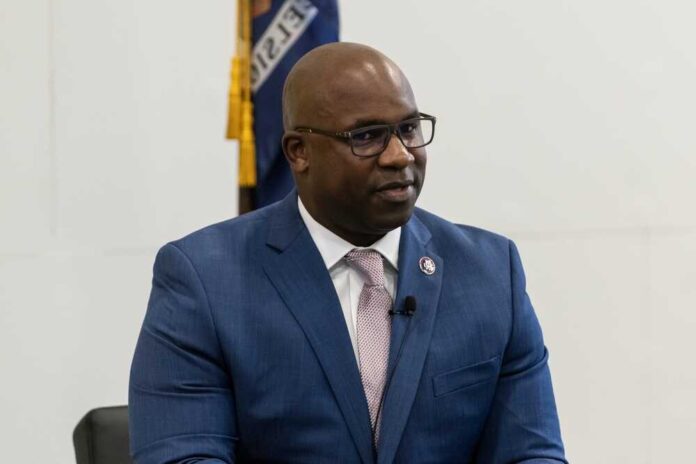In a surprising turn of events, the House of Representatives Ethics Committee won’t pursue any investigation into the actions of Rep. Jamaal Bowman (D-N.Y.). The committee’s decision to abandon forming a subcommittee to look into the matter has raised eyebrows and prompted speculation about the reasons behind this move.
Rep. Susan Wild (D-Pa.) a ranking committee member, and Chairman Michael Guest (R-Miss.) released a statement on Wednesday, sharing the committee’s decision. According to the statement, the committee has a 30-day window to decide whether to launch an investigative subcommittee and issue a report to the House whenever a House member is charged with a crime.
The committee clarified that, under Committee Rule 10(a), establishing a subsequent report and an investigative subcommittee would require a majority vote from the members of the committee. In the case of Rep. Bowman, the committee did not reach a majority agreement to proceed with an investigative subcommittee or issue a report on his conduct.
This announcement comes nearly a month after Bowman entered a guilty plea to a misdemeanor charge for activating a fire alarm in the Cannon House Office Building just before a crucial House vote. The incident occurred as the House prepared to pass a stopgap measure to fund the government before the shutdown deadline.
The decision by the House Ethics Committee has sparked controversy, with some questioning whether it sends the wrong message about accountability for elected officials. Following the fire alarm incident, a group of Republicans accused Bowman of disrupting the pending vote intentionally, and a bill to censure Bowman was put forward.
As part of a plea deal with prosecutors, Bowman has agreed to pay a $1,000 fine and write an apology to the Capitol Police. However, it remains unclear whether further consequences will be imposed on the congressman without a formal investigation by the Ethics Committee.
This development raises important questions about the role of ethics in politics and the responsibility of elected officials to be held accountable for their actions. It also highlights the complexities of navigating the delicate balance between maintaining order and freedom of expression within the political sphere.
While the decision by the House Ethics Committee may disappoint those seeking a more thorough examination of Rep. Bowman’s conduct, it serves as a reminder of the challenges faced by ethics committees in addressing alleged wrongdoing by elected officials. As the political landscape continues to evolve, these committees must uphold the principles of justice and fairness, ensuring that the public’s trust in the democratic process remains intact.














